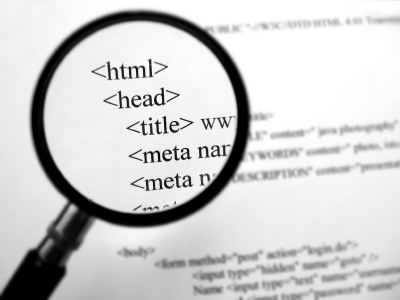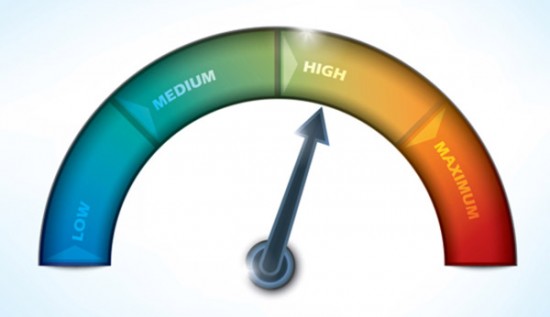Designing and developing of a website is half the battle won, as its successful launch to the web completes the process. Before launching a website, many important factors are checked so that the website works smoothly and achieves the proposed targets. From designing to development, a range of issues have to look for before the final launch of the website. In this article, we discuss 15 important points to consider before launching a website, like:
Broken Links

Broken links are not a good thing to have for a website and they must be corrected before the final launch of the website. Broken links not only cut a sorry figure of the website in the eyes of visitors, but they are also penalized by search engines, if found more than the prescribed limit. Active and well-working links are indeed a good option for a website for various reasons. There are many free broken link checkers available online, and W3C Link Checker is one of them.
404 error page
Having a useful 404 error page is another important aspect before launching the website. Such type of page helps a lot in retaining the visitors to the website and therefore, must be available to the site. In place to showing an error message, a website must have a 404 error page to keep the visitors’ interests alive and kicking, rather than forcing them to click away to another website. So, add value to the site by having the error page that really interests the visitors.
Cross browser compatibility test
Before taking the website to the web, checking it for cross browser compatibility is an important step. Here it’s ensured that the site offers a uniform look & appearance in all major browsers available around. This testing is done so that the site appears almost the same, irrespective of the browsers. With cross browser compatibility, the website is made more accessible to users spread across the globe.
Page titles
A website is designed and developed to perform well in the search engines to fetch intended results and enable target fulfillment. If a website is not designed as per the SEO standards, it won’t get good rankings and visibility in search engines. Page titles are a vital part that not only enables information about the page, but also supports SEO. Every page of the site must have different page title to match the page’s content for ease of readers. It would be mistake if the entire site does have a single page title, as that would adversely affect its SEO prospects.
Meta Data

Meta Data includes the Meta description and keyword tags of a web page for better rankings. The Meta description of each web page must be different to another page of the site. With the keywords, result-oriented keywords must be stuffed into the site, all through the available web pages to appropriately help in the SEO. If rankings and visibility of the site is a top-most priority, the Meta Data must be arranged and managed properly to get the best result out of the site.
Proofread
A website often has more than few things to read and therefore, proofreading it again and again is a good strategy. Giving a second read to the texts and headings is suggested; getting someone else to read them all again is sure to mark out mistakes to sort out. From breaking the large block of content into smaller paragraphs to specifying accurate heads all through the site, a proofread would definitely add value before launching the site online.
RSS Links
Content syndication is important to bring success to a website or blog as users remain updated with the content. A website should have an RSS feed so that readers/ users can easily subscribe to it to gain easy access to the content. A small RSS icon is often placed in the address bar of a browser so that the content easily proliferates to the desired level.
Analytics
A website that tracks its users’ activities is often found to perform better and achieve the targets easily. By simply installing an analytics, the webmaster can easily keep track of the activities of the visitors to a website after the visits to align the site as per the need. Basically an analytics would give an insight into the preference of the visitors that could be worked upon to attract more visits to the site. Many useful data is availed of through analytics; Google Analytics is the most widely used tool for tracking users’ activities and preferences.
Sitemap
A sitemap is a vital element to have in the website, if the target is to get better rankings. Having a sitemap ensures that the content is notified to be crawled for better rankings and enhanced visibility. With the help of a sitemap, search engines are notified about the content of the website that, in turn, presents the content for crawling. XML-Sitemaps is available to automatically create a sitemap for desired ranking results.
Image optimization
Image optimization is an important aspect that is carried out before launching a website. With the optimization of images, the website gets favorable and compact images for helpful SEO. If the images are not optimized, the site might not receive good ranks due to bulky and unhelpful images. There are many popular image optimization tools available for the purpose of image optimization. Web Resizer is one such free online tool.
Page loading
Page loading is an essential part of a website to measure its performance level. If the page loading is increased, the overall performance of the website always remains higher. A range of steps can be employed to boost the page loading of a site so that more visitors reach there. Some useful steps to boost page loading includes image optimization, compression of CSS files & JavaScript, slashing of HTTP requests and employing CSS sprites as per the need.
Functionality Testing
A website has more than few functions to check properly before launching to the web. If functionality check is not done, the site might not work optimally after being launched. Some common functionality checks include contact forms, log-in options and search functions. Once these are checked properly, the site would perform as per the expectation. Functionality testing is a vital aspect before taking the site to the web.
Favicon
Favicon is important to brand the site and therefore, this must be done by all accounts. Having favicon means the site and pages are easily identifiable to the visitors. Either the tab or browser setting, a favicon is an important aspect for a site to get recognized easily by the visitors.
Validation
Validation is essential for a website to add the level of trust for the visitors. A website that is valid exudes more confidence among the visitors than the rest. A site that has passed validation norms is often considered error free. So it’s important to validate the website against the laid-out web standards and norms. A site that has cleared for validation is often considered useful, trustworthy and error-free site that is set to perform optimally.
Back up

A site must have proper back-up to keep performing optimally all through. Having a viable back-up strategy in place means the future of the site is secured. There are many plugins and extensions available for the purpose so that the website always remains secured. In case of not dealing the back- up issue, the database might be lost out to various visible and invisible reasons to repent later. Therefore, it’s suggested to ready the site for a prompt and secure database.
Conclusion
A website must be checked properly before being launched online so that it achieves the targets easily. If not checked, the site might end up cutting a sorry figure, or not meeting to the potential. This article has listed 15 important points to consider before launching a website; users are invited to add more points to make the launch of a website successful.
Amit Pankaj associated with a specialized division of Creativeweblogix. He specializes in Social Media, Content Management and SEO is what he deals with, while sharing information and insights on PHP-based CMSs like WordPress and Joomla. XhtmlJunction is known for providing effective PSD to HTML and PSD to WORDPRESS transformation at reasonable prices. You can follow us on G+ for latest updates related to web design and development.













Excellent checklist! Thanks so mcuh – I will use it everytime I launch a site!
Fantastic and very valuable points every online entrepreneur must know. I am surprised how people live their web without thinking about such valid questions and reasons.
Thankyou Amit, some useful insights there. How about social media buttons?
Rightly said! A website is said to be the representation of your business on WWW, which is why a perfect launch is what every business owner looks forward to. However, other than a perfect launchpad, as a website owner you should make sure that the website is free from anomalies and errors like the ones mentioned in your post. If you do not consider performance checks before website launch then a faulty website can prove to be quite fatal for your business. These fifteen points are really helpful and also the ones that should be considered by the website owner before a website launch.